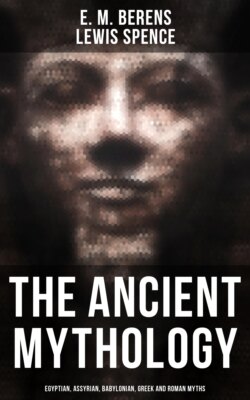Читать книгу The Ancient Mythology: Egyptian, Assyrian, Babylonian, Greek and Roman Myths - Lewis Spence - Страница 88
На сайте Литреса книга снята с продажи.
The Deluge Myth
ОглавлениеIn reply Ut-Napishtim introduces the story of the Babylonian deluge, which, told as it is without interruption, forms a separate and complete narrative, and is in itself a myth of exceptional interest. Presumably the warning of the deluge came to Ut-Napishtim in a vision. The voice of the god said: 'Thou man of Shurippak, son of Ubara-Tutu, pull down thy house, build a ship, forsake thy possessions, take heed for thy life! Abandon thy goods, save thy life, and bring up living seed of every kind into the ship.' The ship itself was to be carefully planned and built according to Ea's instructions. When the god had spoken Ut-Napishtim promised obedience to the divine command. But he was still perplexed as to how he should answer the people when they asked the reason for his preparations. Ea therefore instructed him how he should make reply, 'Bel hath cast me forth, for he hateth me.' The purpose of this reply seems clear, though the remaining few lines of it are rather broken. Ea intends that Ut-Napishtim shall disarm the suspicions of the people by declaring that the object of his shipbuilding and his subsequent departure is to escape the wrath of Bel, which he is to depict as falling on him alone. He must prophesy the coming of the rain, but must represent it, not as a devastating flood, but rather as a mark of the prosperity which Bel will grant to the people of Shurippak, perhaps by reason of his (Ut-Napishtim's) departure therefrom.
